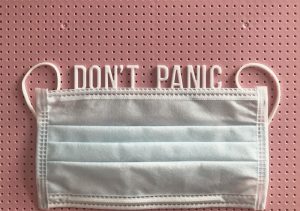
We have a work culture in the UK that contributes to stress. Long hours, especially in management; being ‘on’ when we should be ‘off’, i.e. evenings and holidays because today’s technology allows us to be connected all the time and having no autonomy in your job. All of this adds to us feeling stressed. On top of this, the fact that it is usually OK to take time off for a physical ailment but not always for a mental health issue can lead to emotions being bottled up which in turn does not help with our resilience.
So how do we recognise the extent of our resilience and continue learning resilience in the face of this?
Managing myself differently
Sometimes I have been able to recognise low resilience in myself through physical symptoms such as tiredness due to lack of sleep, feeling ‘under the weather’ but not really ill, frequent headaches and having a shorter fuse than normal. All of which tells me that I have to manage myself differently. Remembering how I might have managed this before is a good way to recognise my resilience.
I have had recent life experiences where I have had to rely on my resilience. I am very aware of the positive power you can take from your past experiences and use again. Taking stock and looking at times in your life when you had a lot going on both at home and at work and remembering how you managed that and what helped is a great way to get a positive angle on something just when you need it most.
Responding rather than reacting
If we can learn to respond to situations rather than react, then we can store those experiences to help us another time. If we can give ourselves permission to still feel what we feel in the moment, and be able to choose a response rather than just run with our immediate feelings, that is when we can recognise that we can be more resilient than we might think because we understand how we have built our resilience dealing with difficult situations before.
Resilience is internal to each of us and learning about our own resilience relies on the investment we have in wanting to ‘bounce back into shape’ and learn from our reaction to things. Identifying early triggers that suggest we are less resilient is helpful. Often these are physical triggers such as those described above or emotional triggers like significant mood changes or reduced capacity to manage emotion.
Developing and learning resilience – forever
Recognising the extent to which we are resilient is extremely helpful in moving ourselves forward and developing ourselves further, but through personal experience and the research I have conducted through interviews and conversations with friends I have learnt this:
You can never be too resilient.
There’s never an endpoint at which you stop learning resilience and this in turn affects the way we recognise it. Every situation is different. Every time you get knocked down and then back up again you continue learning resilience. You may recognise it differently in different situations. It develops with you.
To talk more about wellbeing and resilience in your organisation, contact Lise on 01937 541700 or email her.











